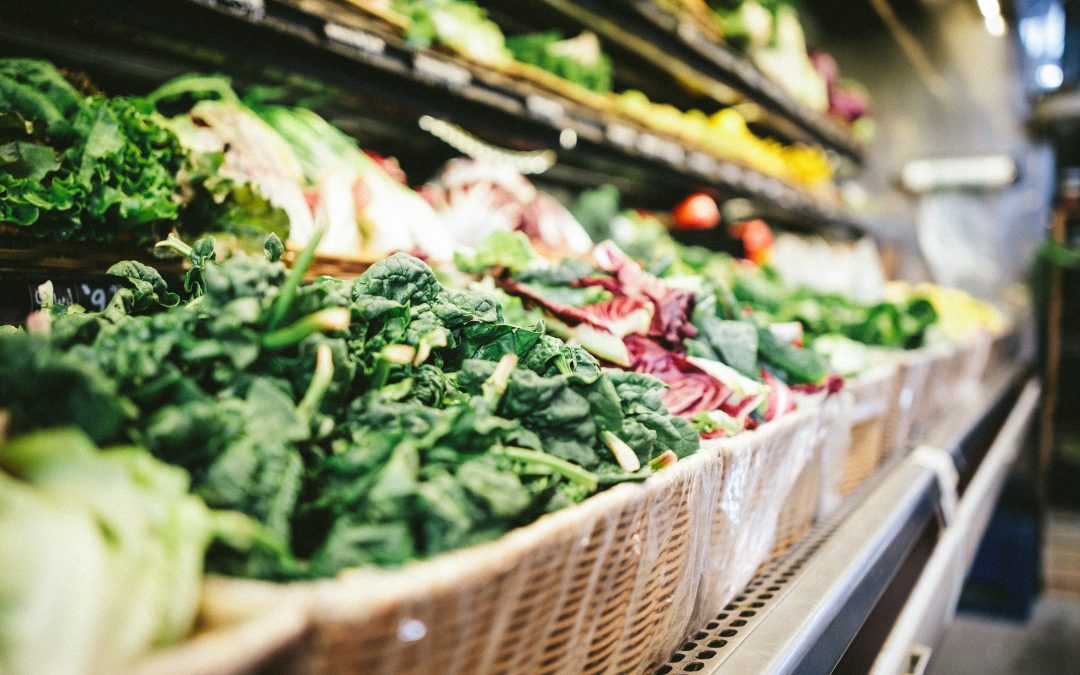In the intricate world of gut health, three key players have emerged as essential components for maintaining a balanced and thriving digestive system. Prebiotics, probiotics, and postbiotics form a powerful trio, each playing a unique and vital role in supporting our overall well-being.
Prebiotics are a type of dietary fiber that serves as fuel for the beneficial bacteria residing in our gut. These non-digestible carbohydrates act as a nourishing source for the growth and proliferation of beneficial microorganisms, promoting a healthy gut microbiome [1].
Probiotics, on the other hand, are live microorganisms that, when consumed in adequate amounts, confer numerous health benefits to the host. These friendly bacteria populate our gut, aiding in digestion, nutrient absorption, and immune function [1].
Postbiotics are the byproducts or metabolites produced by the fermentation process of probiotics. These bioactive compounds possess potent health-promoting properties and contribute to the overall well-being of the gut and body [1].
A balanced and diverse gut microbiome is essential for maintaining optimal health. However, factors such as poor diet, stress, antibiotics, and environmental toxins can disrupt this delicate balance, leading to various health issues. By nurturing and supporting our gut health through the synergistic action of prebiotics, probiotics, and postbiotics, we can promote a thriving gut microbiome and experience numerous benefits [1-3].
The Synergy between Prebiotics and Probiotics
Prebiotics and probiotics form a symbiotic relationship, working in harmony to support a healthy gut ecosystem. Prebiotics act as the fuel, providing nourishment for the beneficial bacteria, including probiotics, to thrive and flourish [2-4].
When we consume prebiotics, they travel through our digestive system undigested until they reach the large intestine. Here, they undergo fermentation by the resident gut bacteria, releasing short-chain fatty acids (SCFAs) and other beneficial metabolites.
Probiotics, on the other hand, are the live microorganisms that colonize our gut and contribute to a diverse and balanced microbiome. By consuming probiotic-rich foods or supplements, we introduce these beneficial bacteria into our gut, where they can proliferate and exert their positive effects.
Together, prebiotics and probiotics, often referred to as a synbiotic, create a synergistic effect, supporting the growth and activity of beneficial gut bacteria, promoting a healthy gut environment, and contributing to overall well-being [2-4].
The Role of Prebiotics in Supporting Gut Health
Prebiotics play a crucial role in maintaining a healthy gut by selectively promoting the growth and activity of beneficial bacteria. These non-digestible fibers act as a food source for the beneficial microorganisms, allowing them to thrive and outcompete harmful bacteria.
Some of the most common and well-studied prebiotics include:
- Inulin
- Fructooligosaccharides
- Galactooligosaccharides
- Xylooligosaccharides
These prebiotics are found naturally in various plant-based foods, such as onions, garlic, bananas, asparagus, and whole grains. Additionally, they can be supplemented through prebiotic supplements or fortified foods [2-3].
By consuming a diet rich in prebiotics, we promote the growth of beneficial bacteria like Bifidobacteria and Lactobacilli, which play crucial roles in digestion, nutrient absorption, and immune function. Furthermore, prebiotics have been shown to support the production of short-chain fatty acids, which have anti-inflammatory properties and contribute to the overall health of the gut lining.
Exploring the Benefits of Probiotics
Probiotics are live microorganisms that, when consumed in adequate amounts, offer a wide range of health benefits. These friendly bacteria play a vital role in maintaining a balanced and diverse gut microbiome, which is essential for optimal digestive function, nutrient absorption, and immune health.
Probiotics can be found naturally in fermented foods such as yogurt, kefir, sauerkraut, kimchi, and kombucha [https://guthealth.org/unlock-the-secrets-of-diy-fermented-foods-part-1-background-and-techniques/ & https://guthealth.org/unlock-the-secrets-of-diy-fermented-foods-part-2-recipes-and-troubleshooting/]. They are also available in supplement form, offering a convenient way to incorporate these beneficial microorganisms into our daily routine.
By consuming probiotic-rich foods or supplements, we introduce these friendly bacteria into our gut, where they can colonize and exert their beneficial effects. Probiotics have been shown to:
- Support digestion and nutrient absorption
- Strengthen the gut barrier and reduce inflammation
- Enhance immune function
- Promote a balanced gut microbiome
- Alleviate symptoms of certain digestive disorders, such as irritable bowel syndrome (IBS)
Postbiotics: The lesser-known components of the trio
While prebiotics and probiotics have gained widespread recognition, postbiotics are the lesser-known members of this powerful trio. Postbiotics are the byproducts or metabolites produced by the fermentation process of probiotics.
These bioactive compounds possess a wide range of health-promoting properties and contribute to the overall well-being of the gut and body. Postbiotics can be produced through various methods, including fermentation, enzymatic processing, or chemical synthesis [1,5].
Some examples of postbiotics include:
- SCFAs
- Exopolysaccharides
- Cell wall components
- Enzymes
- Bacteriocins
Postbiotics have been shown to exhibit anti-inflammatory, immunomodulatory, and antimicrobial properties, making them valuable allies in maintaining gut health and overall well-being [1,5].
How Prebiotics and Postbiotics Work Together for Optimal Health
While prebiotics and probiotics have long been recognized for their synergistic effects, the role of postbiotics in this dynamic trio is gaining increasing attention. Prebiotics and postbiotics form a symbiotic relationship, working together to create an optimal environment for gut health and overall well-being [5].
Prebiotics provide fuel for the growth and proliferation of beneficial bacteria, including probiotics. As these probiotics ferment and metabolize the prebiotics, they produce postbiotics as byproducts.
These postbiotics, in turn, exert various beneficial effects on the gut and body, such as:
- Supporting the growth and activity of beneficial gut bacteria
- Modulating the immune system
- Exhibiting anti-inflammatory properties
- Promoting a healthy gut barrier
- Inhibiting the growth of harmful bacteria
By combining prebiotics and postbiotics, we can create a synergistic effect that supports a balanced gut microbiome, enhances immune function, and promotes overall health and well-being.
The Effects of Prebiotics and Postbiotics on the Immune System
The gut and the immune system are intricately connected, with the gut microbiome playing a crucial role in modulating immune function. Prebiotics and postbiotics have been shown to exert beneficial effects on the immune system, contributing to overall health and well-being [1,2,5].
Prebiotics support the growth of beneficial gut bacteria, which in turn produce postbiotics. These postbiotics can interact with immune cells in the gut, modulating their activity and promoting a balanced immune response.
Some of the key effects of prebiotics and postbiotics on the immune system include:
- Enhancing the production of immunoglobulins (antibodies)
- Stimulating the activity of natural killer cells and other immune cells
- Reducing inflammation and oxidative stress
- Supporting the development and function of regulatory T cells (Tregs), which play a role in immune tolerance
By maintaining a healthy gut microbiome and promoting a balanced immune response, prebiotics and postbiotics can contribute to the prevention and management of various health conditions, including autoimmune disorders, allergies, and chronic inflammatory diseases.
Incorporating Prebiotics, Probiotics, and Postbiotics into your Daily Routine
To harness the power of this perfect trio and experience their numerous health benefits, it’s essential to incorporate them into your daily routine. Here are some practical tips and recommendations:
- Prebiotic-rich foods: Increase your intake of prebiotic-rich foods such as onions, garlic, bananas, asparagus, whole grains, and legumes. These foods provide fuel for the growth of beneficial gut bacteria.
- Probiotic-rich foods: Incorporate fermented foods like yogurt, kefir, sauerkraut, kimchi, and kombucha into your diet. These foods are naturally rich in probiotics and can help replenish the gut microbiome.
- Probiotic supplements: If you struggle to consume enough probiotic-rich foods, consider taking a high-quality probiotic supplement. Look for supplements that contain diverse strains of beneficial bacteria and have a guaranteed minimum viable count.
- Prebiotic supplements: In addition to prebiotic-rich foods, you can supplement your diet with prebiotic supplements like inulin, fructooligosaccharides, or galactooligosaccharides.
- Postbiotic-rich fermented foods: While postbiotics are not as widely available as prebiotics and probiotics, you can obtain them by consuming fermented foods like sauerkraut, kimchi, and kombucha, which contain postbiotic compounds produced during fermentation.
- Lifestyle modifications: Maintain a balanced diet, stay hydrated, exercise regularly, and manage stress levels. These lifestyle factors can support a healthy gut microbiome and enhance the effectiveness of prebiotics, probiotics, and postbiotics.
Final Thoughts
The gut microbiome plays a pivotal role in our overall health and well-being, and prebiotics, probiotics, and postbiotics are the key players in nurturing and supporting this intricate ecosystem. By embracing the power of this perfect trio, we can unlock numerous benefits for our digestive health, immune function, and overall well-being.
Prebiotics act as the fuel for the growth and proliferation of beneficial gut bacteria, while probiotics replenish and maintain a diverse and balanced microbiome. Postbiotics, the lesser-known components of this trio, contribute to the overall health of the gut and body through their bioactive properties.
Remember, consistency is key when introducing prebiotics, probiotics, and postbiotics into your lifestyle. It may take time for the gut microbiome to adapt and reap the full benefits of this powerful trio. However, by embracing this holistic approach, we can unlock the path to a healthier gut, a stronger immune system, and an overall improved sense of well-being.
Sources
[1] Ji, J., Jin, W., Liu, S. J., Jiao, Z., & Li, X. (2023). Probiotics, prebiotics, and postbiotics in health and disease. MedComm, 4(6), e420. https://doi.org/10.1002/mco2.420
[2] Martyniak, A., Medyńska-Przęczek, A., Wędrychowicz, A., Skoczeń, S., & Tomasik, P. J. (2021). Prebiotics, Probiotics, Synbiotics, Paraprobiotics and Postbiotic Compounds in IBD. Biomolecules, 11(12), 1903. https://doi.org/10.3390/biom11121903
[3] Markowiak, P., & Śliżewska, K. (2017). Effects of Probiotics, Prebiotics, and Synbiotics on Human Health. Nutrients, 9(9), 1021. https://doi.org/10.3390/nu9091021
[4] Pandey, K. R., Naik, S. R., & Vakil, B. V. (2015). Probiotics, prebiotics and synbiotics- a review. Journal of food science and technology, 52(12), 7577–7587. https://doi.org/10.1007/s13197-015-1921-1
[5] Zhao Y, Zheng Y, Xie K, Hou Y, Liu Q, Jiang Y, Zhang Y, Man C. (2023). Combating Obesity: Harnessing the Synergy of Postbiotics and Prebiotics for Enhanced Lipid Excretion and Microbiota Regulation. Nutrients. 15(23):4971. https://doi.org/10.3390/nu15234971
https://www.metagenicsinstitute.com/blogs/synergy-in-gut-health/








